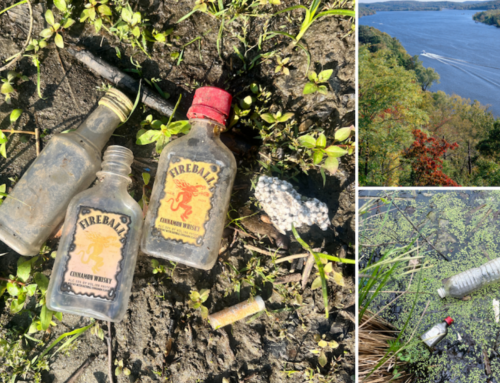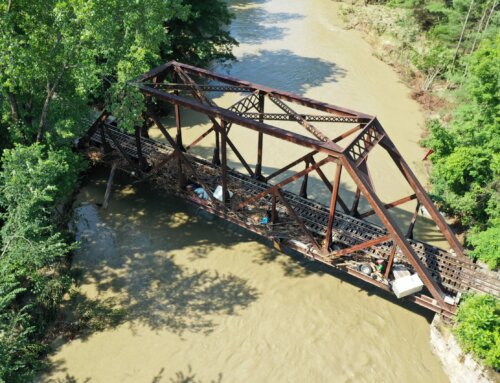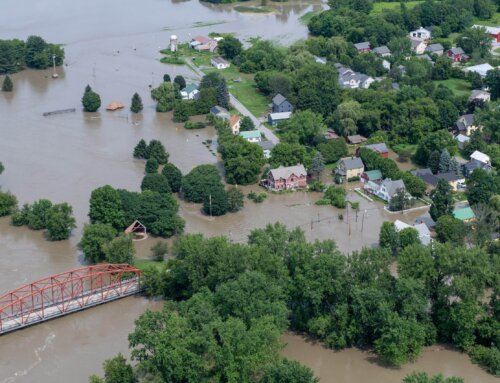October 18, 2016
Honorable Bernie Sanders
United States Senator
332 Dirksen Senate Office Building
Washington, D.C. 20510
Honorable Peter Welch
United States Representative
2303 Rayburn House Office Building
Washington, D.C. 20515
Dear Senator Sanders and Representative Welch:
We are writing on behalf of the members of the Connecticut River Watershed Council (CRC) to express our opposition to the hydroelectric title of S. 2012, the Energy Policy and Modernization Act (both secs. 3001-3004 of the Senate version and secs. 1201-1208 of the House substitute). Since 1952, the members of the Council, in all four watershed states, have worked to protect the Connecticut River. We are active participants in virtually all FERC proceedings that affect the hydroelectric dams on the Connecticut and work closely with the states, federal agencies, and other environmentally oriented stakeholders to make sure that the benefit of renewable energy does not come at the cost of wildlife, clean water, and recreation.
While we have previously written to oppose the hydropower language included in H.R. 8, the North American Energy Security and Infrastructure Act of 2015, it is now the position of the CRC that there should be no hydroelectric title included in the conference report to S. 2012. The complexities of hydroelectric licensing, coupled with the lack of any oversight or investigation of the process since the enactment the Energy Policy Act of 2005, suggest that changes made via conference negotiations would be more likely to shuffle the same deck of cards rather than change—and least of all improve—hydroelectric licensing.
We are, as you know, actively participating in the relicensing of the three main stem dams on the Connecticut River between Vermont and New Hampshire. We rely on the existing FERC and NEPA requirements, complex though they are, to balance the interests of power production with the environmental and recreation uses of the river. Surface water of the United States is a public trust resource held by the state for the common use of all its citizens. It is our water.
In recognition of all rivers being public trust resources, the Federal Power Act requires FERC to balance competing interests in issuing a license because no single use of a river—power, drinking water, irrigation, commercial or sport fishery, recreation, or other use—should automatically take precedence over another. Unfortunately, H.R. 8, and the House substitute to S. 2012, would upend that balance, placing power generation artificially above all other uses of the river. The Senate-passed version of S. 2012, while lacking the most egregious provisions contained within the House legislation, fails to do the single thing that would be welcome in the hydroelectric licensing realm: actually improve the process.
Hydroelectric licenses have fixed conditions that generally remain unchanged during the license term of 30 to 50 years. Licensees also benefit from unlimited, automatic, annual extensions after their license has expired if FERC has not issued a new license. As a result, the impacts of hydropower dams often go unaddressed for up to half a century. For a dam that is coming up for relicensing in 2017, it is entirely possible that it was last licensed in 1967, during the administration of President Lyndon B. Johnson, and has never been subject to the Electricity Consumers Protection Act (1986) and major environmental statutes such as National Environmental Policy Act (1970), the Clean Water Act (1972), and the Endangered Species Act (1973).
The process of developing new license conditions may necessarily require upgrades to facilities to bring them in line with modern environmental laws and attendant regulations. This makes the licensing process rigorous, and rightfully so. Upgrading dams last licensed decades ago so they adhere to the environmental standards that Americans expect and rely upon may be complicated, as the state, federal, and tribal governments have slightly different, although aligned, interests in protecting water quality, wildlife, and recreational opportunities. However, updating the license conditions is critical; many of the people evaluating applications for relicensing were not alive when the last license was issued. Furthermore, improvements in science and technology enable harmful effects of hydroelectric processes to successfully mitigated, as long as the process is committed to preventing unnecessary harm.
When legislating improvements to hydroelectric licensing, the response should not be to address challenges by removing from states, tribes, and the federal government the ability to evaluate the impact of the project on the world around it, as H.R. 8 does. Further, legislative improvements should not unnecessarily involve political appointees in the White House, upend the administrative law process to benefit only the applicant for a license, drag out fact-finding and determinative proceedings, or require more work from overburdened resource agencies to provide reports attempting the qualify the loss of energy production capacity due to ensuring the continued supply (or restoration of) wildlife habitat and clean drinking water, as S. 2012 does.
In the name of reform, the provisions included in H.R. 8 and S. 2012 give preferential treatment to electric utilities at the expense of other statutorily recognized, legitimate parties to licensing proceedings. These drafting decisions were made either spontaneously or at the behest of the electric utilities and project owners who would rather eliminate the parts of the process that enable all the users of the river to participate the in licensing. Whether the decision to wade into hydroelectric regulation was based on good or bad intentions, it is clear to us that most of the stakeholders—the states, tribes, federal agencies, conservationists, sportsmen, irrigators, agricultural producers, and even FERC—were not included. No “improvements” to the process are possible without the involvement of all those the current law recognizes as having a stake in the process.
The single genuine improvement contained in the Senate language of S. 2012 is the portion of sec. 3001(i) amending sec. 34 of the Federal Power Act, giving states the ability to determine when an application for a clean water certification is complete. This provision would prevent those less scrupulous project operators who game the system by relying on their guaranteed annual license from acting in bad faith during the state’s Clean Water Act review process. While the pilot process outlined in Sec. 3001(j) could have the potential to vastly improve water quality, habitat, and wildlife populations, it is unlikely that licensees of varying identities and objectives would submit to have their dams considered with their neighbor.
CRC believes there are genuine areas for improvement in the hydrolicensing process. Legislating these improvements requires Congressional oversight and investigation as well as the active involvement of all our rivers’ stakeholders, not simply the electric utilities. The current process, while imperfect, allows all stakeholders to be involved, and for the vagaries and character of each river and watershed to be considered. Please reject H.R. 8 and S. 2012 and continue this conversation in the next Congress. CRC will be happy to explain our role in managing our river and help you improve licensing as best we can.
On behalf of the Connecticut River,
David Deen, River Steward
Cc Senator Patrick Leahy
Senator Lisa Murkowski
Senator Maria Cantwell
Senator Kelly Ayotte
Senator Jean Shaheen
Representative Fred Upton
Representative Frank Pallone, Jr.
Representative Ann Kuster







